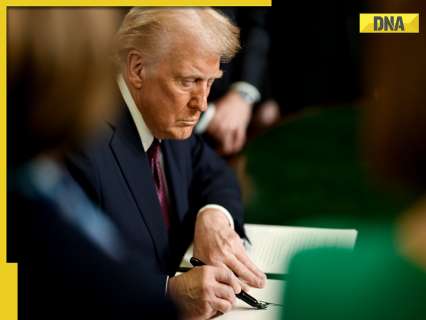Now Reading: Who Is Jeffrey Goldberg and Why Did Trump Officials Leak Yemen War Plans to Him?
-
01
Who Is Jeffrey Goldberg and Why Did Trump Officials Leak Yemen War Plans to Him?
Who Is Jeffrey Goldberg and Why Did Trump Officials Leak Yemen War Plans to Him?

Quick Summary
- Sensitive Information Breach: US President Donald Trump’s top security officials mistakenly shared war plans for Yemen strikes in a Signal group chat that included journalist Jeffrey Goldberg.
- Details of Plans Leaked: The message contained operational details on targeting Iran-backed Houthi rebels, weapons to be deployed, and attack sequencing.Two hours after Goldberg received the information on march 15, the US began airstrikes against Houthi targets.
- Authenticity Confirmed: The National Security Council deemed the text chain “appears to be authentic” and is investigating how Goldberg’s number was added to the Signal chat.
- Officials Involved: Participants in the chat include Defence Secretary Pete Hegseth, Vice-President J D Vance, Secretary of State Marco Rubio, DNI Tulsi Gabbard, and NSA Mike Waltz (who invited Goldberg).
- Mixed responses: Trump claimed ignorance initially and dismissed outrage jokingly later; defense officials denied sharing “war plans.” Democratic lawmakers condemned the incident and called for a full inquiry under laws governing classified information such as Espionage Act provisions.
- Security Concerns with Signal Use: While popular for encrypted dialog, Signal lacks official classification protections critical for military correspondence.
Indian Opinion Analysis
This breach highlights potential vulnerabilities in digital communication among high-level goverment officials globally-especially its implications for operational security during sensitive military operations like those involving Yemen or Iran-backed factions. For India-which frequently faces threats along borders-it underscores the importance of adhering to stringent protocols over classified data handling across political leaderships. Increased reliance on tech tools must not bypass safeguards or established practices around national security.
India can also consider reviewing its own use of messaging platforms by armed forces personnel or policymakers based on lessons from this episode while emphasizing accountability mechanisms similar to America’s Espionage Act provisions ensuring institutional duty over any lapses leading either indirectly or directly toward compromising national interests.
























